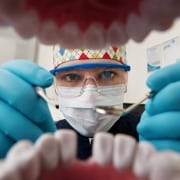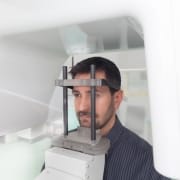Natural Fruit Juices For Your Child
As a loving parent, you may have decided a long time ago to limit the amount of processed foods that your child eats. That’s a smart way to protect teeth and gums, as your family dentist in Bellbrook, OH will tell you. And, as far as beverages go, natural is considered best as well. But fruit juices—even natural ones with no added sugar—contain enough naturally-occurring sugars that you should consider limiting them, too. Excessive juice consumption can contribute to tooth decay, enamel erosion, and other oral health problems, making it important for parents to understand the hidden dangers and how to protect your child’s teeth.
High Sugar Content and Tooth Decay
Even natural fruit juices contain high amounts of natural sugars, which feed the bacteria in the mouth. This process produces acids that attack tooth enamel, leading to cavities. Since young children have thinner enamel than adults, their teeth are more vulnerable to decay. Frequent juice consumption, especially between meals, increases the risk of early childhood cavities, sometimes called “baby bottle tooth decay.”
Acidic Erosion of Enamel
In addition to its sugar content, fruit juice is naturally acidic. Citrus-based juices like orange, apple and pineapple juice contain acids that wear down enamel over time. Once enamel is weakened, teeth become more sensitive and prone to decay. Unlike other body tissues, enamel doesn’t regenerate, making it essential to limit acidic exposure from fruit juices.
The Risk of Sending a Toddler to Bed with Juice
One of the most harmful habits for a child’s teeth is sending them to bed with a bottle of fruit juice. When juice sits on the teeth overnight, sugar and acids have extended contact with enamel, creating the perfect conditions for cavities to form. This habit can quickly lead to severe tooth decay, requiring extensive dental treatment. To prevent this, children should only be given water in their bottles or sippy cups before bedtime.
From the standpoint of your dentist in Bellbrook, OH, fluoridated water is the best beverage of choice for children and adults alike. Of course, we understand that plain water can be a little bit mundane, so might we suggest adding only a small drop of fruit juice, just for flavor? For more great tips about ensuring your child’s oral health, contact us today!









